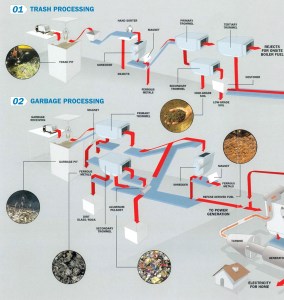CFP: The Urban Economy: Networks, Flows and Place
12 International Conference on Urban History European Association for Urban History (EAUH)
Portugal, Lisbon September 3-6, 2014
We invite everyone interested to submit a paper proposal (in the form of a 200 to 300-word abstract) for a conference session (M22) exploring the economic networks of cities in the nineteenth and twentieth centuries.
The deadline for submission is 15 October, 2013.
 This session explores the role of the diverse flows and networks of knowledge, materials, capital and people in the building, meaning and character of the urban economy in the nineteenth and twentieth centuries. Most economic history sees economic institutions as islands, separate from the specific locales in which they operate and tends to undervalue place. The economy has been relatively neglected by urban historians over the past two decades. While the growing interest in cultural, social and planning issues provides new insights into the dynamics of urban life, these insights have rarely been deployed to understand the working of the urban economy. With this in mind, this session explore the role of the circulation of economic assets (knowledge, materials, capital, and people) in the making, development, restructuring and meaning of the urban economy. Recent work on social, political and economic networks suggests that the linkages within the urban economy are simultaneously boundary spanning (relationships outside of the institutional shell), hierarchical (wide differences in the ability to control, manipulate and create assets), and local (rooted in the everyday politics of place). At the same time, economic agents, whether they be individuals, firms, industries, association or cities, operate within a set of broader set of spatial relationships that link place-based specific economic sites to metropolitan regional, national and international worlds. Urban economies are caught in a web of interactions and networks.
This session explores the role of the diverse flows and networks of knowledge, materials, capital and people in the building, meaning and character of the urban economy in the nineteenth and twentieth centuries. Most economic history sees economic institutions as islands, separate from the specific locales in which they operate and tends to undervalue place. The economy has been relatively neglected by urban historians over the past two decades. While the growing interest in cultural, social and planning issues provides new insights into the dynamics of urban life, these insights have rarely been deployed to understand the working of the urban economy. With this in mind, this session explore the role of the circulation of economic assets (knowledge, materials, capital, and people) in the making, development, restructuring and meaning of the urban economy. Recent work on social, political and economic networks suggests that the linkages within the urban economy are simultaneously boundary spanning (relationships outside of the institutional shell), hierarchical (wide differences in the ability to control, manipulate and create assets), and local (rooted in the everyday politics of place). At the same time, economic agents, whether they be individuals, firms, industries, association or cities, operate within a set of broader set of spatial relationships that link place-based specific economic sites to metropolitan regional, national and international worlds. Urban economies are caught in a web of interactions and networks.
We invite case studies of, among other things, individuals, firms, industries, associations, institutions or cities that examine how local economic activity is a product of the circulation of economic, social and political assets. Thematically, among other topics, we welcome papers that explore the following issues:
- the differentiated economic processes of city-building (land assembly, infrastructures, residential and industrial construction, etc.);
- the mobilization of economic information and knowledge (among firms, associations, workers, growth alliances, governments, etc.);
- the rise of finance capital and the development of an urban hierarchy;
- the economics of spatial development and the role of individuals, associations and institutions in the making of urban spaces.
Above all we want to explore the way in which the density and concentration of network activity in and between urban places affects the interaction of economic, social and cultural processes.
Papers should be submitted online via the EAUH2014 website before October 15, 2103:
The completed papers (7-14 pages) are due in July 2014. Please feel free to contact either or both of us if you have any questions about the session or your prospective abstract.
Session organizers:
Robert Lewis (Canada) – University of Toronto: lewis@geog.utoronto.ca
Bob Morris (United Kingdom) – University of Edinburgh: rjmorris@ed.ac.uk
